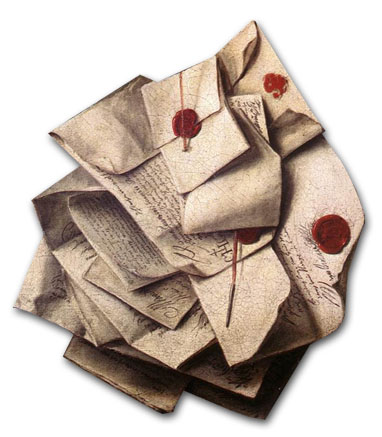CFP: Cultures of Correspondence in Early Modern Britain
Tags: Britain
 Papers are sought for a major conference on ‘Cultures of Correspondence in Early Modern Britain, 1550-1640’, which will take place at the University of Plymouth on 14-16 April 2011. According to the organizers, the conference aims to ‘enhance our understanding of epistolary culture and to challenge accepted models of epistolarity through the study of letter-writing practices in all their nuanced complexity, ranging from the textual production of letters, their subsequent delivery and circulation, to the various ways in which letters were read and preserved for posterity’. Abstracts should focus on one the following key themes:
Papers are sought for a major conference on ‘Cultures of Correspondence in Early Modern Britain, 1550-1640’, which will take place at the University of Plymouth on 14-16 April 2011. According to the organizers, the conference aims to ‘enhance our understanding of epistolary culture and to challenge accepted models of epistolarity through the study of letter-writing practices in all their nuanced complexity, ranging from the textual production of letters, their subsequent delivery and circulation, to the various ways in which letters were read and preserved for posterity’. Abstracts should focus on one the following key themes:
- The materiality of the letter: the physicality of correspondence (paper, ink, seals, folding) as well as the social context of epistolarity (composition, delivery, reading, archiving);
- Correspondence networks, the circulation of letters, postal systems, and modes of delivery;
- Letters, news, and intelligence;
- Authenticity, deception, and surveillance: forgeries, secrecy, ciphers, and codes;
- Women’s letters and the gendered nature of letter-writing;
- Epistolary literacies, social hierarchies, and the acquisition and diffusion of letter-writing skills;
- Manuscript letters and letters in print;
- The letter as a cultural genre and the rhetorics of letter-writing;
- Humanistic letter-writing practices and the familiar letter; letter-writing manuals and models; education, pedagogy and learning to write letters;
- Categories or types of letters: suitors’ letters, letters of petition, love letters, letters of condolence;
- Genres of printed letters: prefatory letters, dedicatory letters, address to the readers;
- Staging the letter: letters and letter-writing in drama;
- Editing and the digitization of correspondence.
Proposals of 300 words (including titles) should be sent to James Daybell (james.daybell(at)plymouth.ac.uk) and Andrew Gordon (a.gordon(at)abdn.ac.uk) by 1 July 2010. For further details, please see the full call.


 Join
Join 